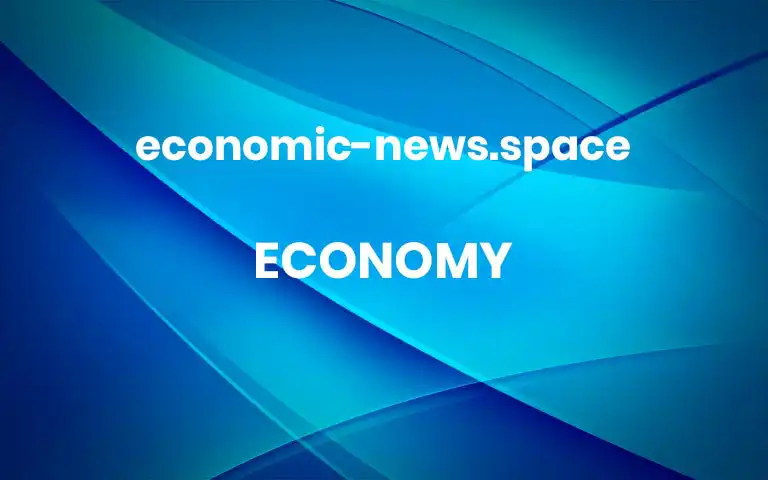Red Sea Shipping Halt Is Latest Risk to Global Economy

Next year could see increasing volatility as persistent military conflicts and economic uncertainty influence voting in national elections across the globe.The attacks on crucial shipping traffic in the Red Sea straits by a determined band of militants in Yemen — a spillover from the Israeli-Hamas war in Gaza — is injecting a new dose of instability into a world economy already struggling with mounting geopolitical tensions.The risk of escalating conflict in the Middle East is the latest in a string of unpredictable crises, including the Covid-19 pandemic and the war in Ukraine, that have landed like swipes of a bear claw on the global economy, smacking it off course and leaving scars.As if that weren’t enough, more volatility lies ahead in the form of a wave of national elections whose repercussions could be deep and long. More than two billion people in roughly 50 countries, including India, Indonesia, Mexico, South Africa, the United States and the 27 nations of the European Parliament, will head to the polls. Altogether, participants in 2024’s elections olympiad account for 60 percent of the world’s economic output.In robust democracies, elections are taking place as mistrust in government is rising, electorates are bitterly divided and there is a profound and abiding anxiety over economic prospects.A ship crossing the Suez Canal toward the Red Sea. Attacks on the Red Sea have pushed up freight and insurance rates.Mohamed Hossam/EPA, via ShutterstockA billboard promoting presidential elections in Russia, which will take place in March.Dmitri Lovetsky/Associated PressEven in countries where elections are neither free nor fair, leaders are sensitive to the economy’s health. President Vladimir V. Putin’s decision this fall to require exporters to convert foreign currency into rubles was probably done with an eye on propping up the ruble and tamping down prices in the run-up to Russia’s presidential elections in March.The winners will determine crucial policy decisions affecting factory subsidies, tax breaks, technology transfers, the development of artificial intelligence, regulatory controls, trade barriers, investments, debt relief and the energy transition.A rash of electoral victories that carry angry populists into power could push governments toward tighter control of trade, foreign investment and immigration. Such policies, said Diane Coyle, a professor of public policy at the University of Cambridge, could tip the global economy into “a very different world than the one that we have been used to.”In many places, skepticism about globalization has been fueled by stagnant incomes, declining standards of living and growing inequality. Nonetheless, Ms. Coyle said, “a world of shrinking trade is a world of shrinking income.”And that raises the possibility of a “vicious cycle,” because the election of right-wing nationalists is likely to further weaken global growth and bruise economic fortunes, she warned.A campaign rally for former President Donald J. Trump in New Hampshire in December.Doug Mills/The New York TimesA line of migrants on their way to a Border Patrol processing center at the U.S.-Mexico border. Immigration will be a hot topic in upcoming elections.Rebecca Noble for The New York TimesMany economists have compared recent economic events to those of the 1970s, but the decade that Ms. Coyle said came to mind was the 1930s, when political upheavals and financial imbalances “played out into populism and declining trade and then extreme politics.”The biggest election next year is in India. Currently the world’s fastest-growing economy, it is jockeying to compete with China as the world’s manufacturing hub. Taiwan’s presidential election in January has the potential to ratchet up tensions between the United States and China. In Mexico, the vote will affect the government’s approach to energy and foreign investment. And a new president in Indonesia could shift policies on critical minerals like nickel.The U.S. presidential election, of course, will be the most significant by far for the world economy. The approaching contest is already affecting decision-making. Last week, Washington and Brussels agreed to suspend tariffs on European steel and aluminum and on American whiskey and motorcycles until after the election.The deal enables President Biden to appear to take a tough stance on trade deals as he battles for votes. Former President Donald J. Trump, the likely Republican candidate, has championed protectionist trade policies and proposed slapping a 10 percent tariff on all goods coming into the United States — a combative move that would inevitably lead other countries to retaliate.Mr. Trump, who has echoed authoritarian leaders, has also indicated that he would step back from America’s partnership with Europe, withdraw support for Ukraine and pursue a more confrontational stance toward China.Workers on a car assembly line in Hefei, China. Beijing has provided enormous incentives for electric vehicles.Qilai Shen for The New York TimesA shipyard in India, which is jockeying to compete with China as the world’s largest manufacturing hub.Atul Loke for The New York Times“The outcome of the elections could lead to far-reaching shifts in domestic and foreign policy issues, including on climate change, regulations and global alliances,” the consulting firm EY-Parthenon concluded in a recent report.Next year’s global economic outlook so far is mixed. Growth in most corners of the world remains slow, and dozens of developing countries are in danger of defaulting on their sovereign debts. On the positive side of the ledger, the rapid fall in inflation is nudging central bankers to reduce interest rates or at least halt their rise. Reduced borrowing costs are generally a spur to investment and home buying.As the world continues to fracture into uneasy alliances and rival blocs, security concerns are likely to loom even larger in economic decisions than they have so far.China, India and Turkey stepped up to buy Russian oil, gas and coal after Europe sharply reduced its purchases in the wake of Moscow’s invasion of Ukraine. At the same time, tensions between China and the United States spurred Washington to respond to years of strong-handed industrial support from Beijing by providing enormous incentives for electric vehicles, semiconductors and other items deemed essential for national security.A protest in Yemen on Friday against the operation to safeguard trade and protect ships in the Red Sea.Osamah Yahya/EPA, via ShutterstockThe drone and missile attacks in the Red Sea by Iranian-backed Houthi militia are a further sign of increasing fragmentation.In the last couple of months, there has been a rise in smaller players like Yemen, Hamas, Azerbaijan and Venezuela that are seeking to change the status quo, said Courtney Rickert McCaffrey, a geopolitical analyst at EY-Parthenon and an author of the recent report.“Even if these conflicts are smaller, they can still affect global supply chains in unexpected ways,” she said. “Geopolitical power is becoming more dispersed,” and that increases volatility.The Houthi assaults on vessels from around the world in the Bab-el-Mandeb strait — the aptly named Gate of Grief — on the southern end of the Red Sea have pushed up freight and insurance rates and oil prices while diverting marine traffic to a much longer and costlier route around Africa.Last week, the United States said it would expand a military coalition to ensure the safety of ships passing through this commercial pathway, through which 12 percent of global trade passes. It is the biggest rerouting of worldwide trade since Russia’s invasion of Ukraine in February 2022.Claus Vistesen, chief eurozone economist at Pantheon Macroeconomics, said the impact of the attacks had so far been limited. “From an economic perspective, we’re not seeing huge increase in oil and gas prices,” Mr. Vistesen said, although he acknowledged that the Red Sea assaults were the “most obvious near-term flashpoint.”Uncertainty does have a dampening effect on the economy, though. Businesses tend to adopt a wait-and-see attitude when it comes to investment, expansions and hiring.“Continuing volatility in geopolitical and geoeconomic relations between major economies is the biggest concern for chief risk officers in both the public and private sectors,” a midyear survey by the World Economic Forum found.With persistent military conflicts, increasing bouts of extreme weather and a slew of major elections ahead, it’s likely that 2024 will bring more of the same. More



